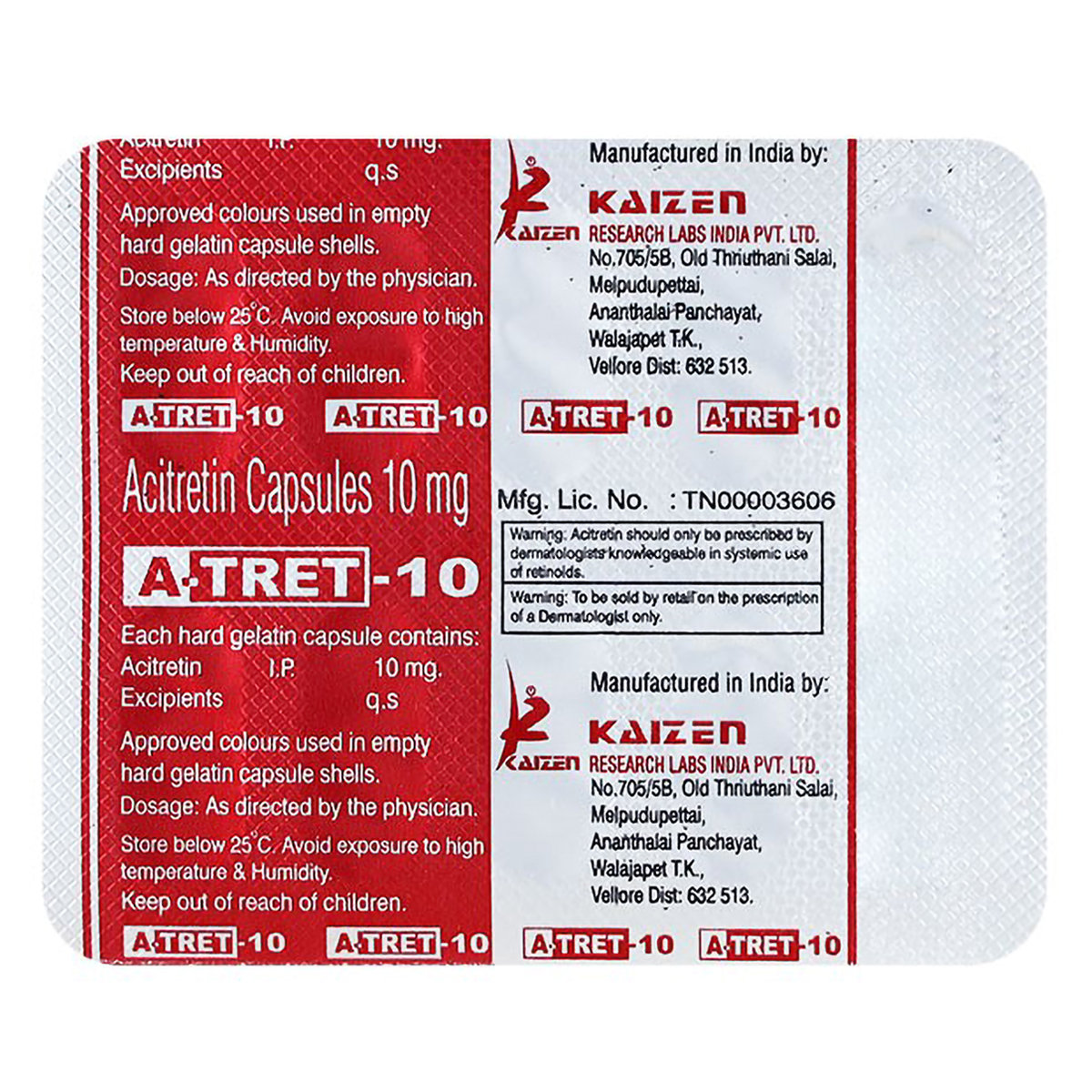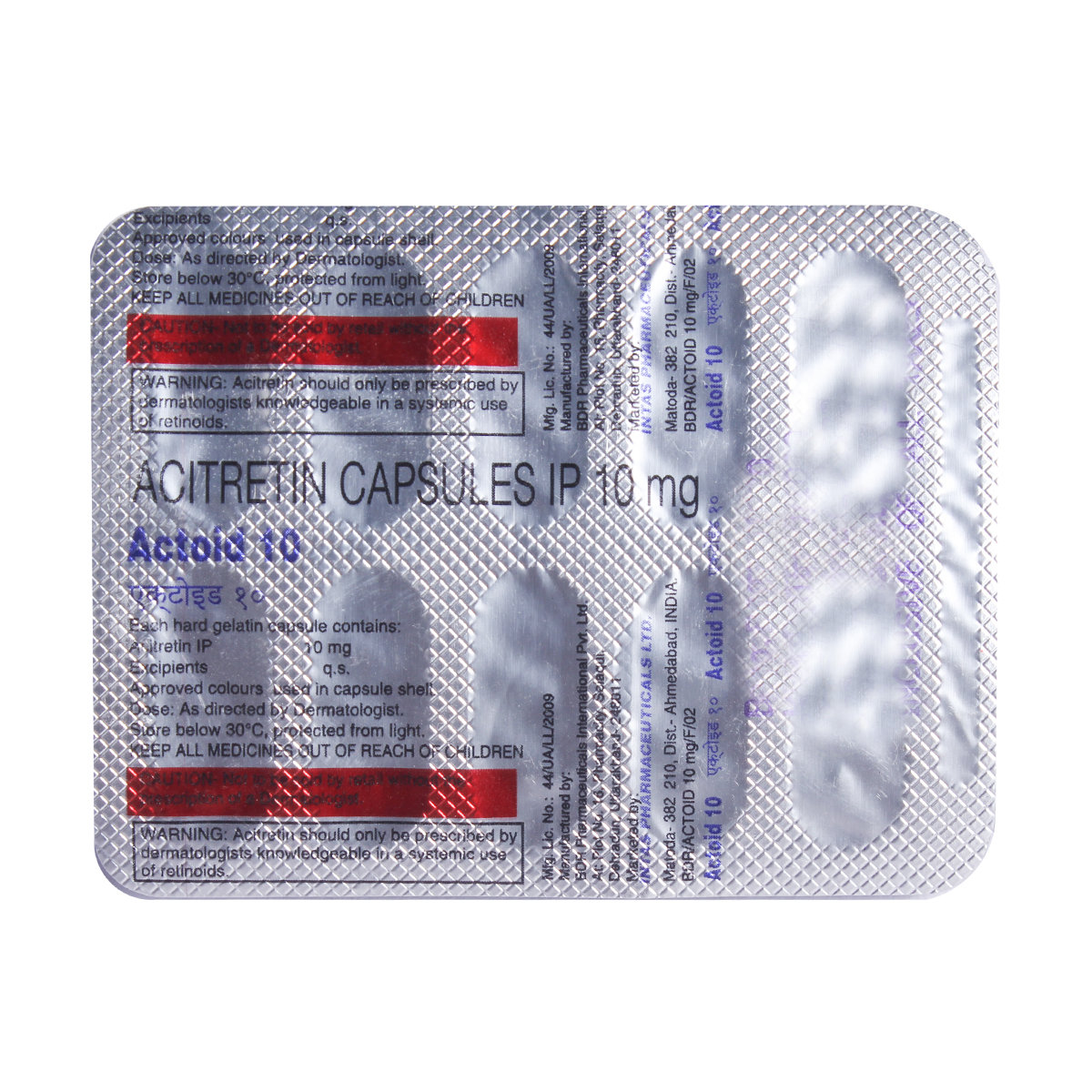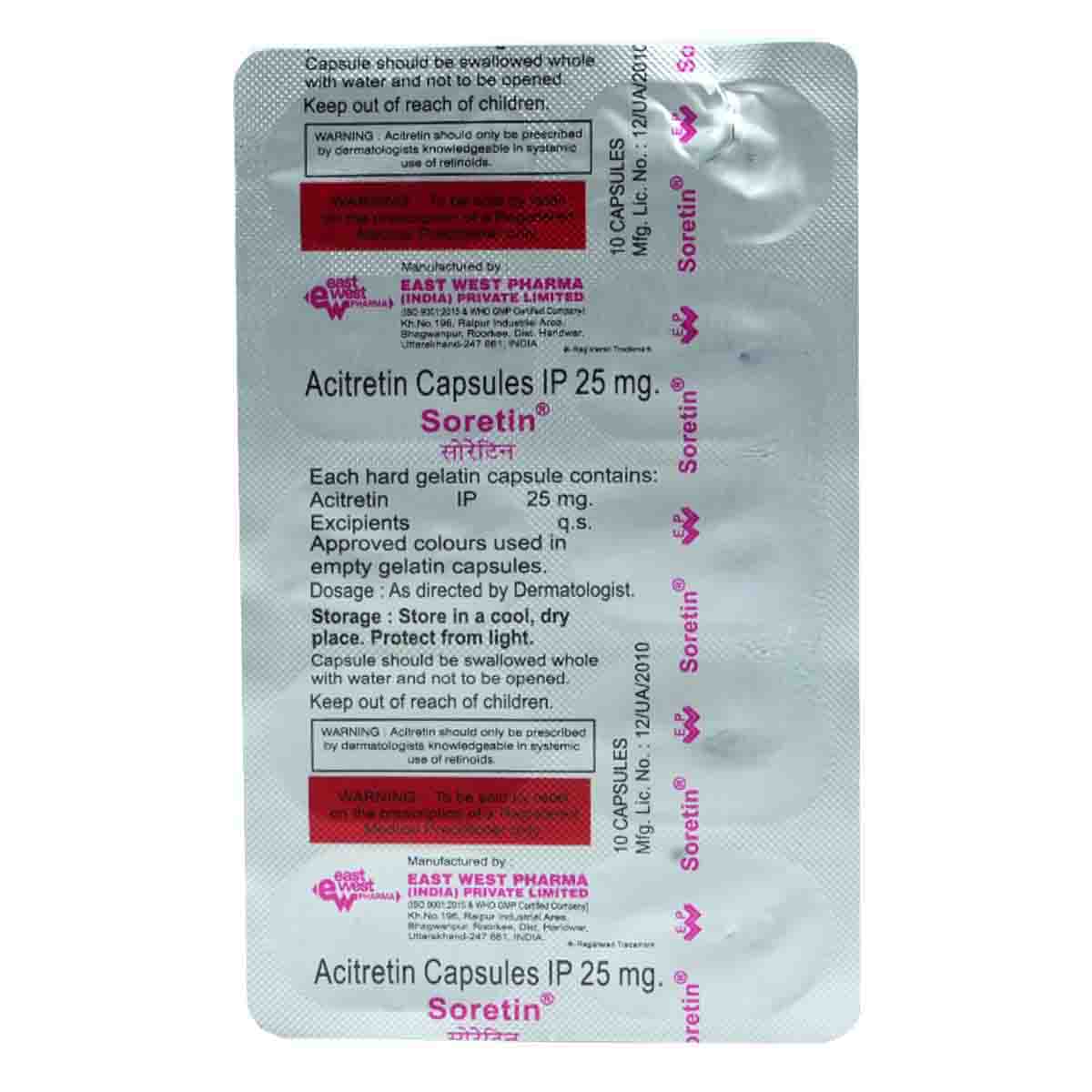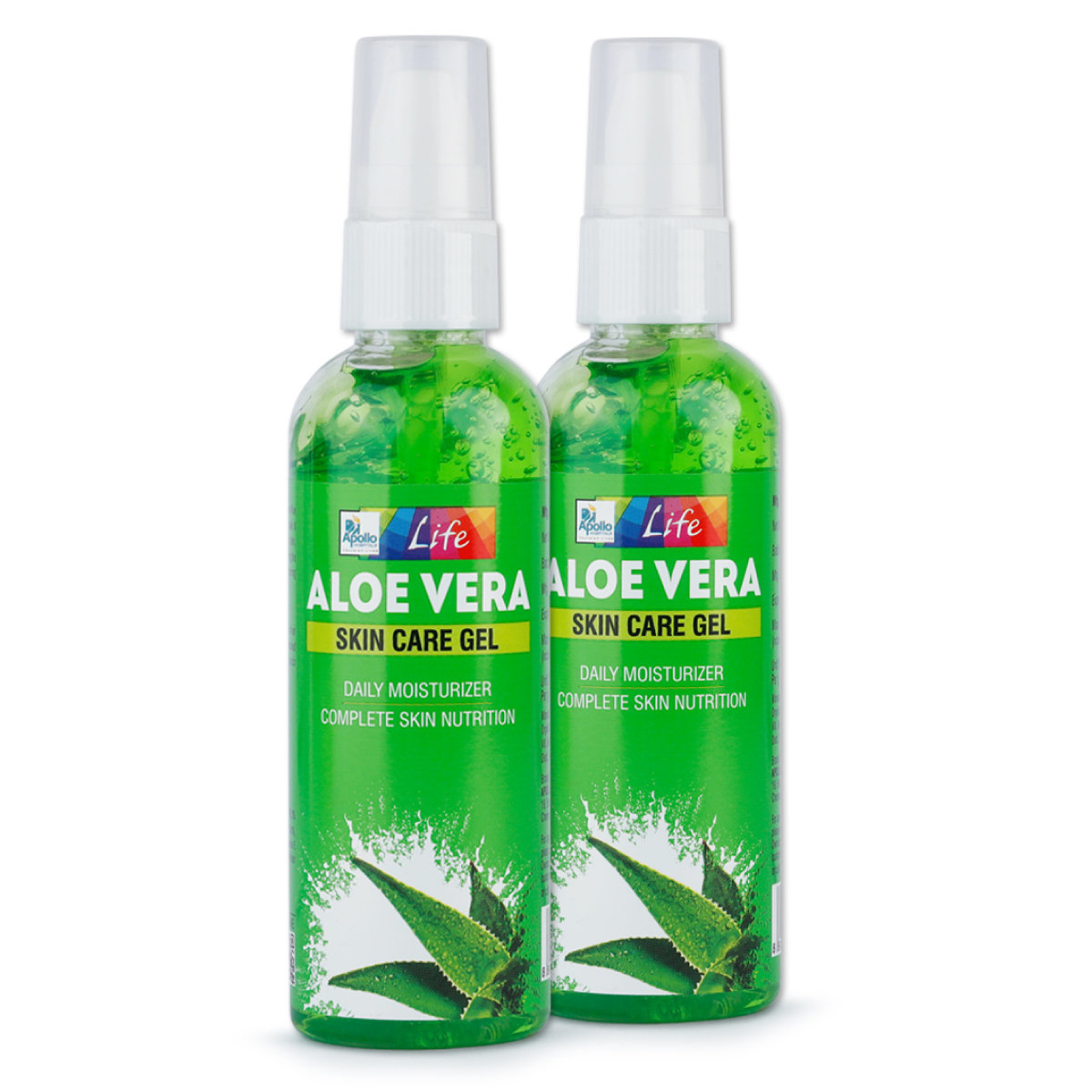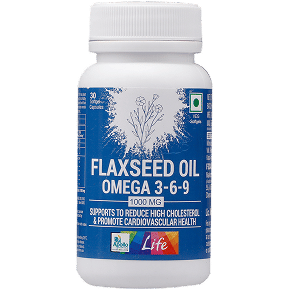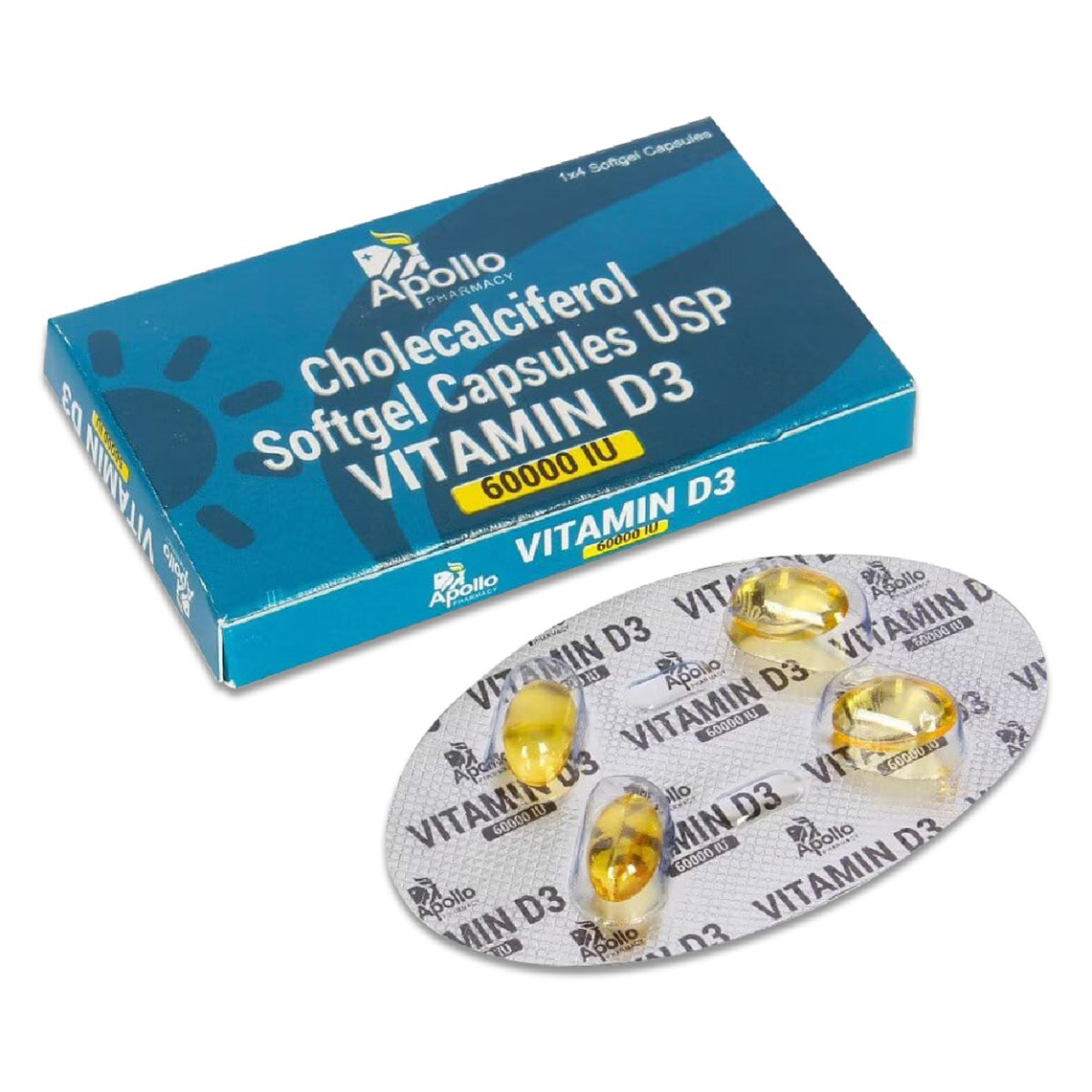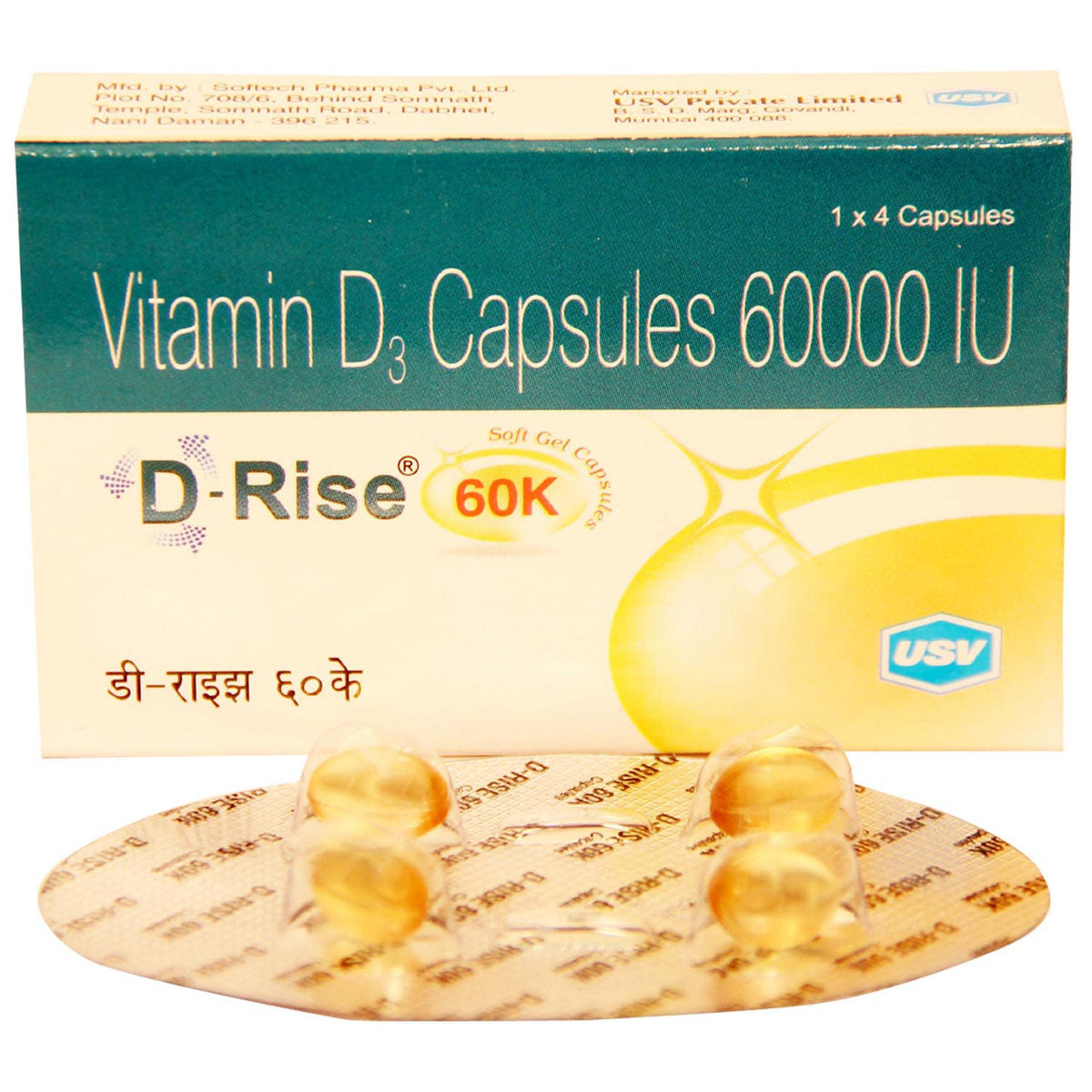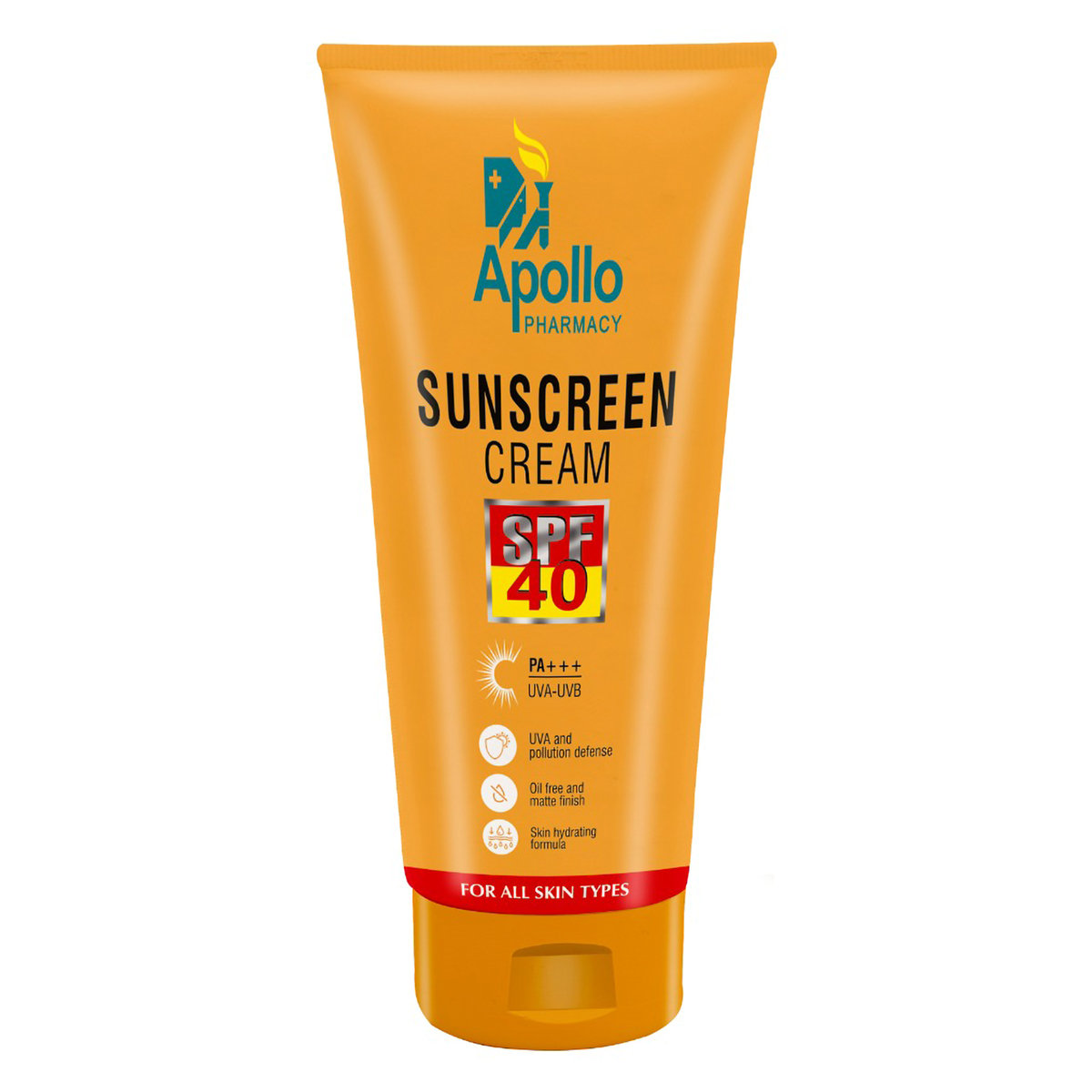Acrotac 10 mg Capsule
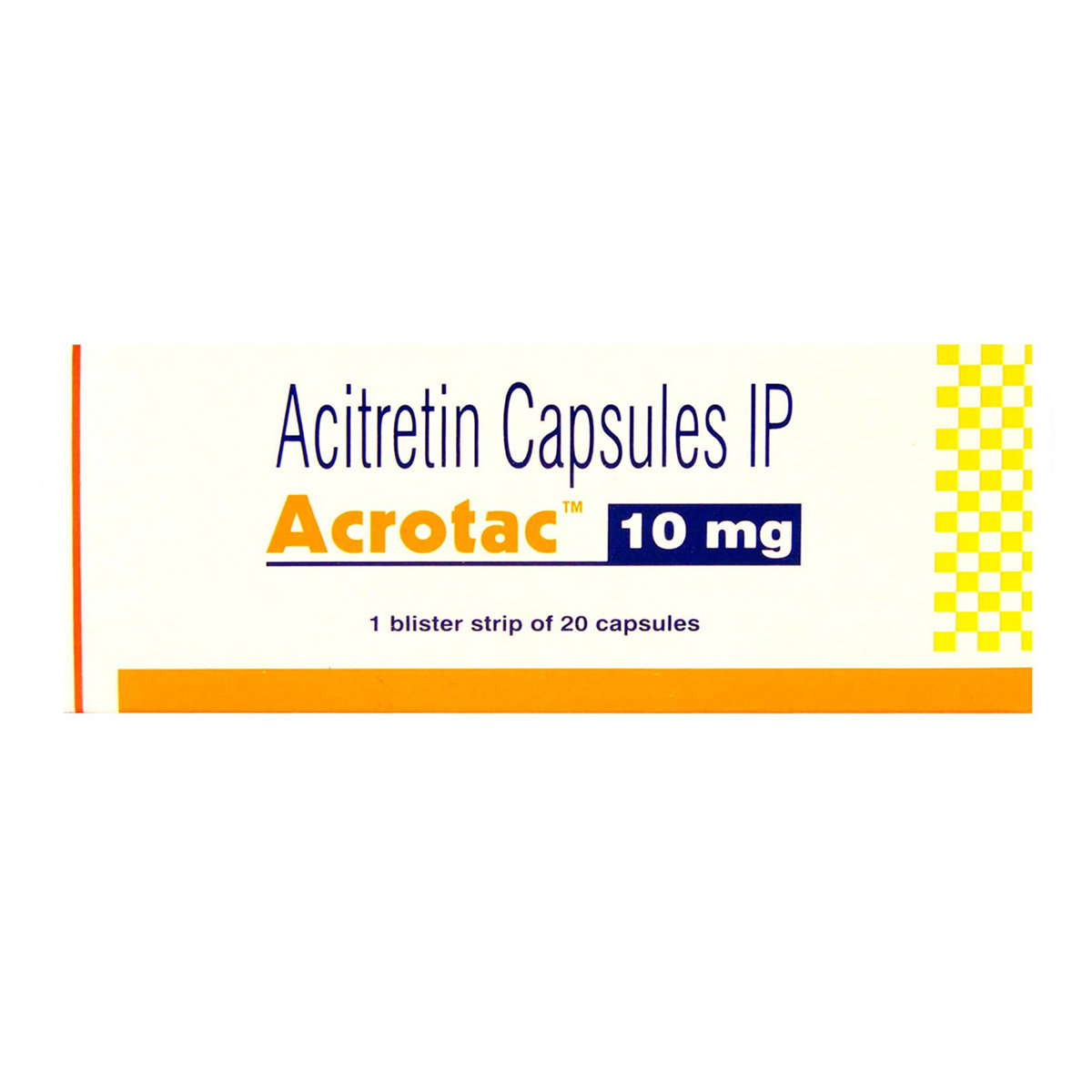
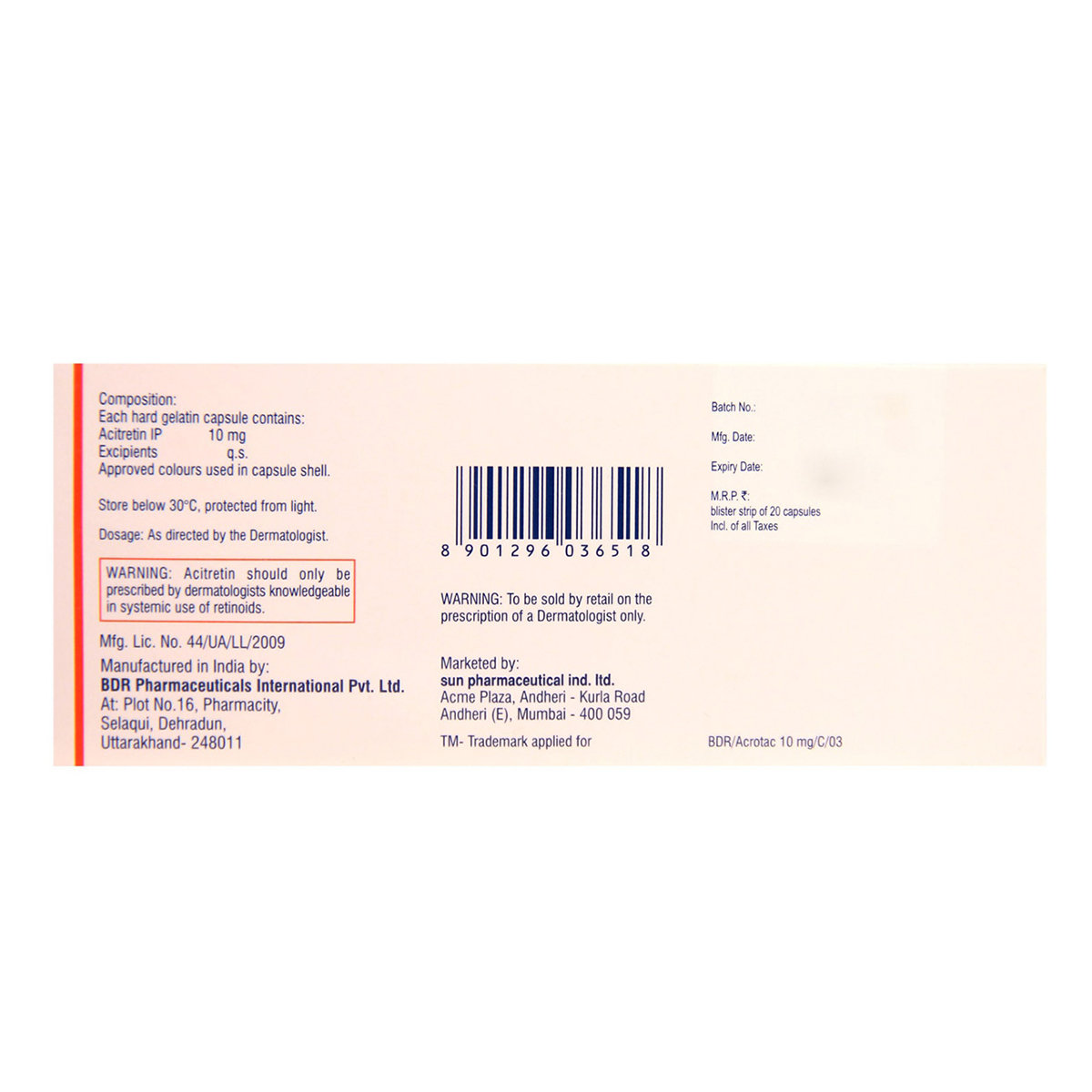
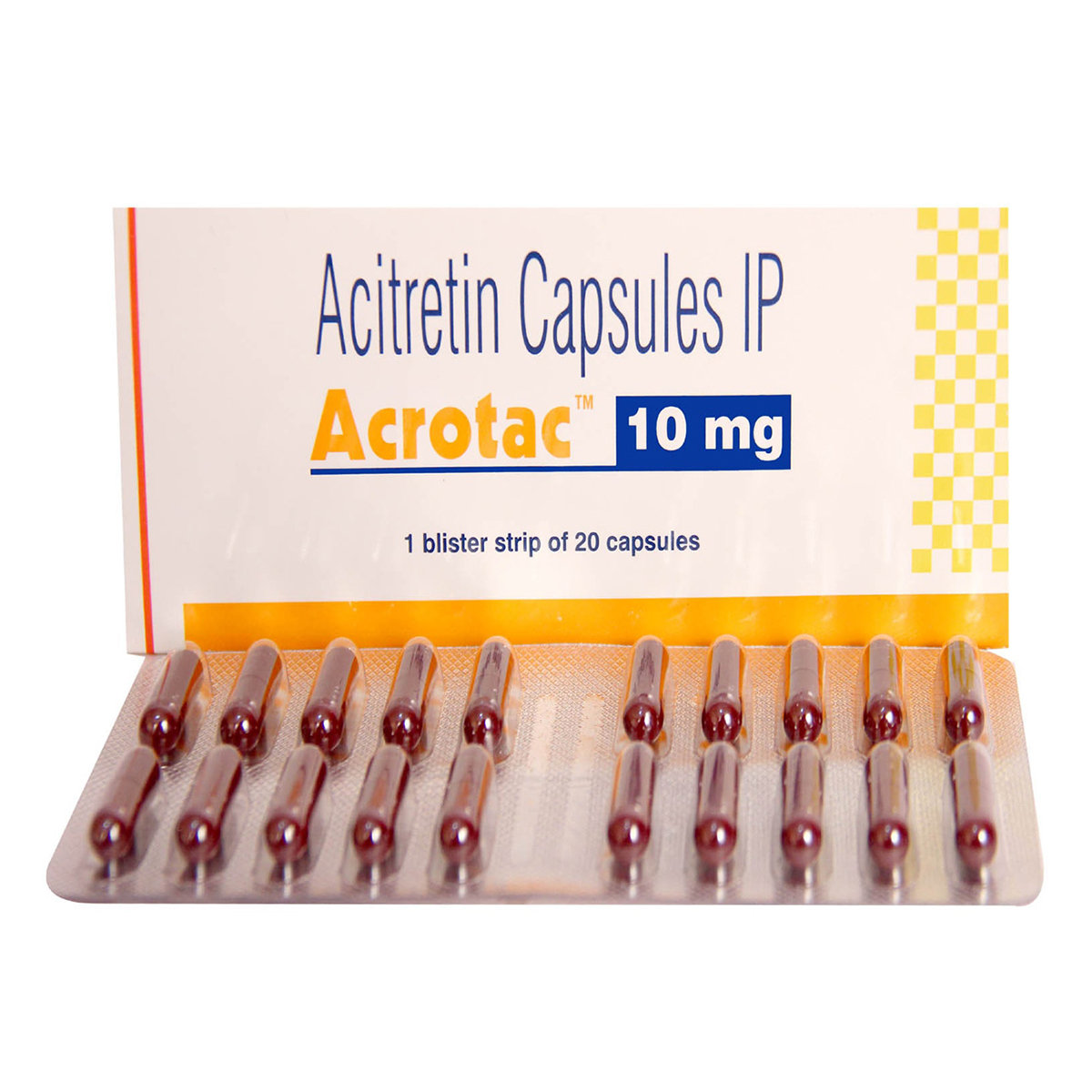
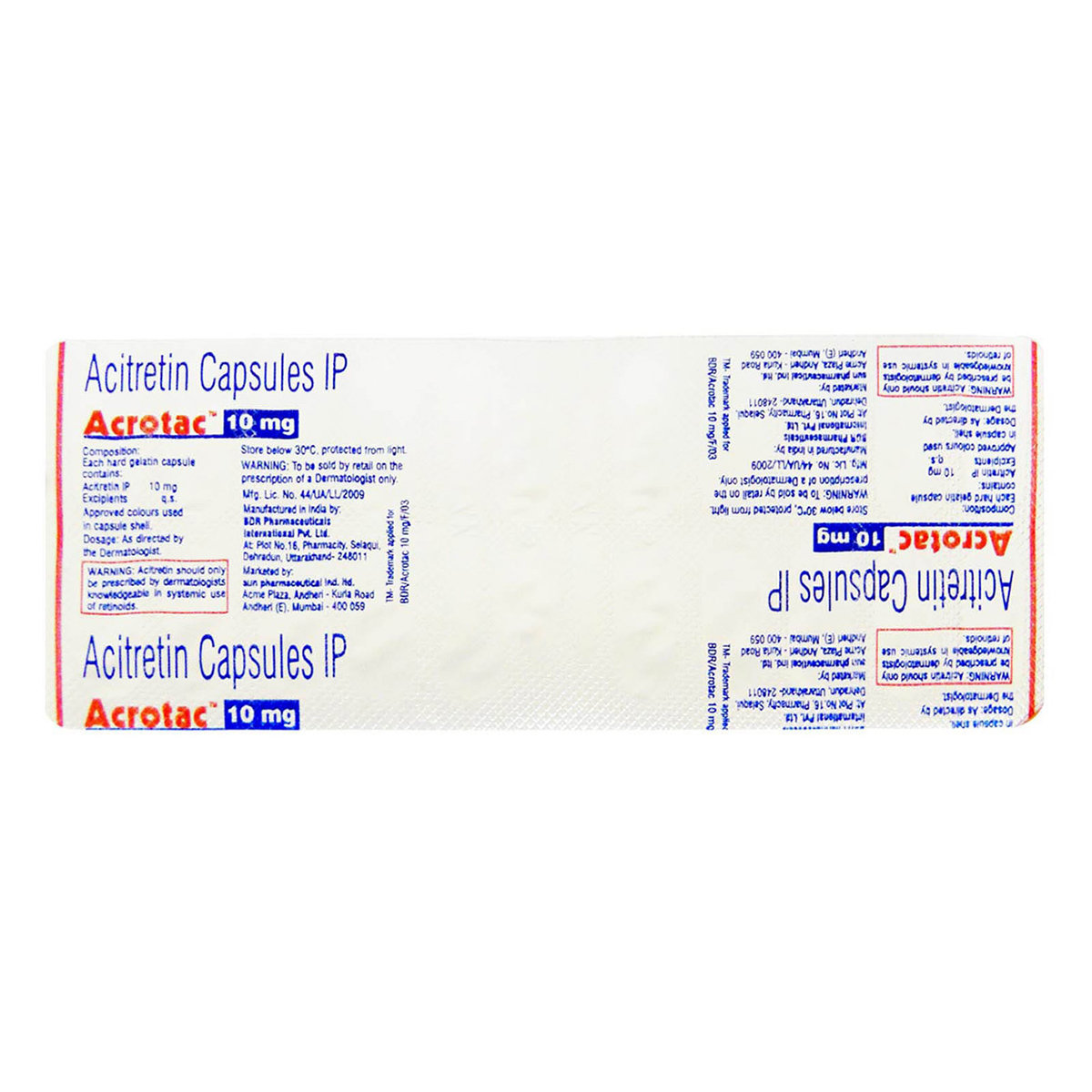
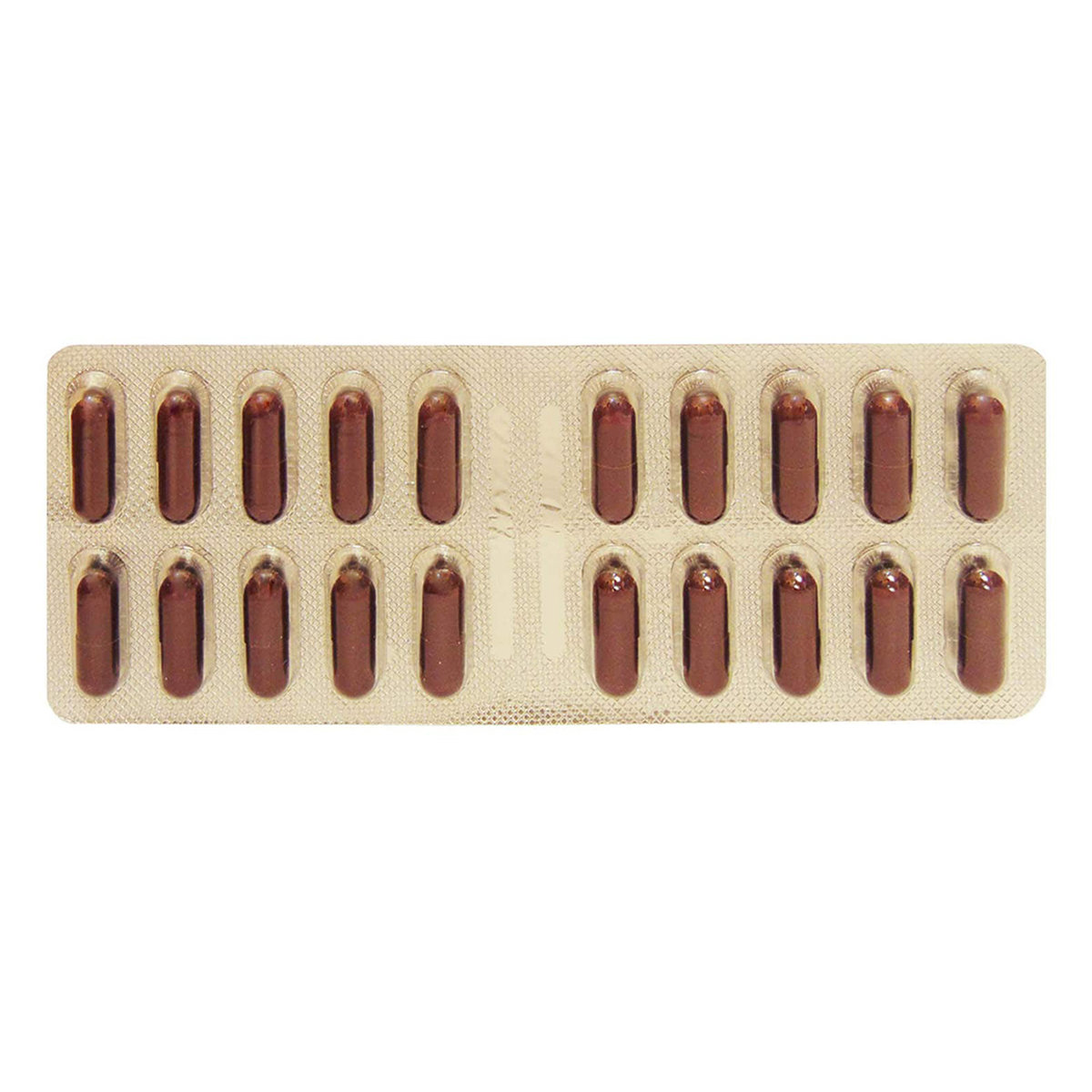
MRP ₹768.5
(Inclusive of all Taxes)
₹115.3 Cashback (15%)
know your delivery time
Provide Delivery Location
Composition :
Manufacturer/Marketer :
Consume Type :
Expires on or after :
Return Policy :

Secure Payment

Trusted by 8 Crore Indians

Genuine Products
Therapeutic Class
Country of origin
Manufacturer/Marketer address
FAQs
Disclaimer
Alcohol
Safe if prescribed
Acrotac 10 mg Capsule may interact with alcohol and increase the risk of side-effects. So, it is not recommended to take alcohol, especially women of childbearing potential during the treatment and at least 2 months after completing the treatment.
Pregnancy
Consult your doctor
Acrotac 10 mg Capsule should not be used in pregnant women as it may cause harmful effects to the unborn baby or fetus. Consult your doctor for further advice.
Breast Feeding
Consult your doctor
Acrotac 10 mg Capsule should not be given to breastfeeding mothers as it may pass into breast milk and harm the nursing baby. Consult your doctor for further advice.
Driving
Safe if prescribed
Acrotac 10 mg Capsule may cause vision problems suddenly, especially in the dark. So, do not drive or operate heavy machinery if you notice any vision problems, especially at night.
Liver
Consult your doctor
Acrotac 10 mg Capsule should not be used in patients with severe liver failure as Acrotac 10 mg Capsule may cause liver damage. In mild to moderate liver diseases, the dose may have to be adjusted by your doctor.
Kidney
Consult your doctor
Acrotac 10 mg Capsule should not be used in patients with severe kidney failure. In mild to moderate kidney diseases, the dose may have to be adjusted by your doctor.
Children
Safe if prescribed
Acrotac 10 mg Capsule should be used in children only if clinically needed as it may affect growth and bone development. The dose may have to be adjusted by your doctor.
Product Substitutes
About Acrotac 10 mg Capsule
Acrotac 10 mg Capsule belongs to a group of medications called ‘retinoids’ used to treat psoriasis. Psoriasis is an autoimmune (immune system attacks healthy cells) skin disorder in which the skin becomes scaly, swollen, and itchy. It mostly affects the knee, elbows, scalp, and trunk. It is a lifelong condition, and treatment is given to remove affected skin cells and avoid flare-ups of the disease.
The Acrotac 10 mg Capsule contains ‘Acitretin’, which belongs to the class of retinoids derived from vitamin A. It has anti-inflammatory and antiproliferative (decreases skin cell multiplication) properties. It works by slowing down the progression of the disease. It reduces the speed of skin cell growth and gradually clears the affected skin. It helps reduce the redness, scaling, and thickness of psoriasis rashes.
Acrotac 10 mg Capsule is available in the form of tablets/capsules. You should take this medicine exactly as prescribed by your doctor. Acrotac 10 mg Capsule may cause side-effects such as dry lips, peeling of the skin, especially the palms of the hands and soles of the feet, nose bleed, scaling and thinning of healthy skin, reddening of the skin, itching, burning sensation on the skin, sticky skin, hair loss, swelling and pain in the area around your nails, fragile nails, inflammation of the eye (conjunctivitis), increased thirst, and feeling cold. These side effects usually go away after discontinuing the treatment. However, if any of these side effects persist or worsen, inform your doctor immediately.
Do not take Acrotac 10 mg Capsule if you are allergic to Acitretin or any other ingredients present in it. Acrotac 10 mg Capsule should not be used in patients with liver or kidney failure, high cholesterol, and taking other medicines containing retinoids or supplements containing vitamin A. Acrotac 10 mg Capsule should not be used in pregnant and breastfeeding women. Acrotac 10 mg Capsule should be used with caution in children as it may affect growth and bone development. Acrotac 10 mg Capsule may require dose adjustments when used in older people. Do not take alcohol, as it may increase the risk of side effects. Acrotac 10 mg Capsule may cause vision problems, especially in the dark, so do not drive or operate heavy machinery if you notice any vision problems.
Uses of Acrotac 10 mg Capsule
Medicinal Benefits Mweb
Key Benefits
Acrotac 10 mg Capsule contains ‘Acitretin’ that belongs to the class of ‘retinoids’. Retinoids are derived from vitamin A (retinol) and have anti-inflammatory and antiproliferative (reduces rapid skin cell division) action. Acrotac 10 mg Capsule works by slowing down the progression of the diseases. Acrotac 10 mg Capsule is used when the skin condition doesn’t improve with other conventional therapies. It can treat severe or extensive skin problems where the skin has become thick and scaly such as psoriasis. It can be long-term maintenance therapy for psoriasis patients. It can also be used in the treatment of other skin conditions such as ichthyosis (genetic skin disorder), pityriasis (skin rashes that appear as large spots on the chest, abdomen, or back), and lichen planus (itchy, non-infectious rashes on arms and legs).
Directions for Use
Side Effects of Acrotac 10 mg Capsule
- Dry lips
- Peeling of the skin, especially the palms of the hands and soles of the feet
- Nose bleed
- Scaling and thinning of healthy skin
- Reddening of the skin
- Itching
- Burning sensation on the skin
- Sticky skin
- Hair loss
- Swelling and pain in the area around your nails
- Fragile nails
- Inflammation of the eye (conjunctivitis)
- Increased thirst
- Feeling cold
Drug Warnings
Acrotac 10 mg Capsule should not be used in pregnant and breastfeeding women. So, the doctor may advise you to take a pregnancy test before using Acrotac 10 mg Capsule . You should also take effective and reliable contraception (such as an intrauterine device, contraceptive implant, or contraceptive pill and condom) during the treatment and after three years of discontinuing the treatment. You should take reliable contraception even if your periods are not regular or not sexually active unless your doctor decides that this is unnecessary. You should not donate blood during the treatment and after three years of discontinuing the treatment. Acrotac 10 mg Capsule should be used in caution in patients with diabetes as it can alter blood glucose levels. Acrotac 10 mg Capsule may cause vision problems, especially in the night-time. So, inform your doctor if you notice vision problems. Do not wear contact lenses during the treatment as the Acrotac 10 mg Capsule may cause dry eyes. Acrotac 10 mg Capsule may increase skin sensitivity, so avoid going in strong sunlight and using a sunbed. Acrotac 10 mg Capsule may affect your mood, so inform your doctor if you have mental health problems like depression. Also, inform your doctor if you notice drastic mood changes while using Acrotac 10 mg Capsule .
Drug-Drug Interactions
Drug-Drug Interactions
Login/Sign Up
Coadministration of Acrotac 10 mg Capsule with Levonorgestrel can increase the risk and severity of birth defects in unborn when taken by a pregnant woman.
How to manage the interaction:
Taking Acrotac 10 mg Capsule with Levonorgestrel together is generally avoided as it can result in an interaction, it can be taken if a doctor has advised it. Consult a doctor if you get pregnant while taking these medications. Never use Acrotac 10 mg Capsule if you are pregnant. Do not stop using any medications without talking to a doctor.
Coadministration of Acrotac 10 mg Capsule with Doxycycline can increase the risk and severity of vision problems.
How to manage the interaction:
Taking Acrotac 10 mg Capsule with Doxycycline together is generally avoided as it can result in an interaction, it can be taken if your doctor has advised it. However, if you experience headaches, nausea, vomiting, and visual disturbances, contact a doctor immediately. Do not discontinue any medications without consulting a doctor.
Coadministration of Acrotac 10 mg Capsule with Ethanol can increase the risk and severity of birth defects.
How to manage the interaction:
Taking Acrotac 10 mg Capsule with Ethanol together is avoided as it can result in an interaction, it can be taken if your doctor has advised it. However, if you experience headaches, nausea, vomiting, and visual disturbances, contact a doctor immediately. Do not discontinue any medications without consulting a doctor.
Co-administration of Acrotac 10 mg Capsule with Oxytetracycline can increase the risk of a rare and serious condition called pseudotumor cerebri (caused by increased pressure in the brain).
How to manage the interaction:
Taking Acrotac 10 mg Capsule with Oxytetracycline together is generally avoided as it can result in an interaction, it can be taken if a doctor has advised it. However, if you experience headaches, nausea, vomiting, and visual disturbances, contact a doctor immediately. Do not discontinue any medications without consulting a doctor.
Co-administration of Acrotac 10 mg Capsule with Minocycline may increase the risk of a serious condition called pseudomotor cerebral (false brain tumour).
How to manage the interaction:
There's a possible interaction between Acrotac 10 mg Capsule and Minocycline should be used together only if prescribed by a doctor. However, if you develop symptoms such as nausea, vomiting, headache, or visual disturbances during treatment with either medication, contact a doctor immediately. Do not discontinue any medication without consulting a doctor.
Coadministration of Acrotac 10 mg Capsule with Demeclocycline can increase the risk and severity of pseudotumor cerebri (caused by increased pressure in the brain).
How to manage the interaction:
Taking Acrotac 10 mg Capsule with Demeclocycline together is generally avoided as it can result in an interaction, it can be taken if your doctor has advised it. However, if you experience headaches, nausea, vomiting, and visual disturbances, contact a doctor immediately. Do not discontinue any medications without consulting a doctor.
Coadministration of Acrotac 10 mg Capsule with Medroxyprogesterone can increase the risk and severity of birth defects when taken by a pregnant woman.
How to manage the interaction:
Taking Acrotac 10 mg Capsule with Medroxyprogesterone together is generally avoided as it can result in an interaction, it can be taken if your doctor has advised it. Consult a doctor if you get pregnant while taking these medications. Do not discontinue any medications without consulting a doctor.
Coadministration of Acrotac 10 mg Capsule with Tetracycline can increase the risk and severity of pseudotumor cerebri (caused by increased pressure in the brain).
How to manage the interaction:
Taking Acrotac 10 mg Capsule with Tetracycline together is generally avoided as it can result in an interaction, it can be taken if your doctor has advised it. However, if you experience headaches, nausea, vomiting, and visual disturbances, contact a doctor immediately. Do not discontinue any medications without consulting a doctor.
Coadministration of Acrotac 10 mg Capsule with Etonogestrel can increase the risk and severity of birth defects when taken in pregnant women.
How to manage the interaction:
Taking Acrotac 10 mg Capsule with Etonogestrel together is generally avoided as it can result in an interaction which can be serious, it can be taken if your doctor has advised it. Do not discontinue any medications without consulting a doctor.
Co-administration of Acrotac 10 mg Capsule with Methotrexate may increase the risk or severity of liver problems.
How to manage the interaction:
Although there is a possible interaction between Acrotac 10 mg Capsule with Methotrexate, you can take these medicines together if only when prescribed by a doctor. Do not discontinue any medications without talking to a doctor.
Drug-Food Interactions
Drug-Food Interactions
Login/Sign Up
Drug-Diseases Interactions
Drug-Diseases Interactions
Login/Sign Up
Acrotac 10 mg Capsule is contraindicated in patients with chronic abnormally elevated blood lipid values.
How to manage the interaction:
Serum lipids must be more closely monitored in high-risk patients and during long-term treatment with Acrotac 10 mg Capsule. Dietary modifications, reduction in dose of Acrotac 10 mg Capsule, or drug therapy should be employed to control significant elevations of triglycerides, and if hypertriglyceridemia and low HDL levels persist, discontinuation of Acrotac 10 mg Capsule should be considered.
Acrotac 10 mg Capsule is contraindicated in patients with severely impaired kidney function.
How to manage the interaction:
It is recommended to monitor kidney function as per clinical guidelines.
The use of retinoids has been associated with causing of intracranial hypertension.
How to manage the interaction:
If you develop early signs and symptoms of pseudomotor cerbri (false brain tumor) such as nausea, vomiting, headache and visual disturbances, contact your doctor immediately.
The use of retinoids has been associated with elevations in liver enzymes and toxic hepatitis. Therapy with Acrotac 10 mg Capsule is contraindicated in patients with severely impaired liver function.
How to manage the interaction:
This medicine should be used with caution in patients with liver disease. Monitoring liver enzymes is recommended in these patients.
The use of Acrotac 10 mg Capsule its affect by the blood sugar levels and result in problems with blood sugar control.
How to manage the interaction:
It should be used with caution in diabetic patients, and regular monitoring of blood sugar levels is recommended during therapy.
Ophthalmologic manifestations have been reported with the use of Acrotac 10 mg Capsule.
How to manage the interaction:
If you experience visual difficulties while taking Acrotac 10 mg Capsule, contact your doctor.
Drug-Drug Interactions Checker List
- TETRACYCLINE
- METHOTREXATE
- PHENYTOIN
Habit Forming
Special Advise
- Growth and bone development should be regularly monitored if the Acrotac 10 mg Capsule is given to children.
- Patients with diabetes are advised to monitor blood glucose levels while using this medicine regularly.
- Patients with high cholesterol should regularly monitor fat levels in the blood while using this medicine.
- Your doctor may also check liver function before, during, and after three weeks of discontinuing Acrotac 10 mg Capsule , as this medicine may affect liver function.
- If Acrotac 10 mg Capsule is prescribed for the long-term, your doctor may perform an x-ray of certain bones once a year, as this medicine may affect bone development.
- Acrotac 10 mg Capsule may cause birth defects, so women planning for pregnancy are advised to the regular pregnancy test and should not become pregnant for the next three years after using Acrotac 10 mg Capsule .
Diet & Lifestyle Advise
- Use mild soap while taking baths and prefer warm baths.
- Do not scratch or pick your skin to avoid infecting the affected area.
- Avoid harsh products on your skin.
- Manage stress, eat healthily, drink plenty of water, exercise regularly, and get plenty of sleep.
- Limit intake of food that might trigger allergies such as dairy products, soy, eggs, and nuts.
- Avoid consuming foods with excess sugar, as it may flare up inflammation.
- Include fruits, vegetables, whole grains, healthy fats, and fish in your diet.
- Avoid getting in contact with harsh soaps, detergents, and rough fabrics.
All Substitutes & Brand Comparisons
RX
A Tret 10 mg Capsule 10's
Kaizen Pharmaceuticals Pvt Ltd
₹234
(₹21.06 per unit)
39% CHEAPERRX
Glacitret-10 Capsule 10's
Glasier Wellness Inc
₹271.5
(₹24.44 per unit)
29% CHEAPERRX
Bdace 10 mg Capsule 10's
BDR Pharmaceuticals Internationals Pvt Ltd
₹303.5
(₹27.32 per unit)
21% CHEAPER

Have a query?
Buy best Dermatology products by
Glenmark Pharmaceuticals Ltd
Sun Pharmaceutical Industries Ltd
Klm Laboratories Pvt Ltd
Cipla Ltd
Canixa Life Sciences Pvt Ltd
Abbott India Ltd
Ajanta Pharma Ltd
Intas Pharmaceuticals Ltd
Dr Reddy's Laboratories Ltd
East West Pharma India Pvt Ltd
Alkem Laboratories Ltd
Atopic laboratories Pvt Ltd
Hegde & Hegde Pharmaceutica Llp
Brinton Pharmaceuticals Ltd
Torrent Pharmaceuticals Ltd
Amwill Healthcare Pvt Ltd
Leeford Healthcare Ltd
Palsons Derma Pvt Ltd
Oaknet Healthcare Pvt Ltd
Med Manor Organics Pvt Ltd
Micro Labs Ltd
Dermocare Laboratories Gujarat Llp
Fixderma India Pvt Ltd
Apex Laboratories Pvt Ltd
Mankind Pharma Pvt Ltd
Ipca Laboratories Ltd
Yaher Pharma
Systopic Laboratories Pvt Ltd
Menarini India Pvt Ltd
Ethinext Pharma
Nemus Pharmaceuticals Pvt Ltd
Skinocean Pharmaceuticals
Dermacia Healthcare
Inex Medicaments Pvt Ltd
Lupin Ltd
GlaxoSmithKline Pharmaceuticals Ltd
Talent India Pvt Ltd
Zydus Cadila
Kivi Labs Ltd
Zydus Healthcare Ltd
Hbc Dermiza Healthcare Pvt Ltd
Mrhm Pharma Pvt Ltd
Regaliz Medicare Ltd
Sol Derma Pharmaceuticals Pvt Ltd
Newtrimed Healthcare Pvt Ltd
Wallace Pharmaceuticals Pvt Ltd
Eskon Pharma
Glowderma Lab Pvt Ltd
La Pristine Bioceuticals Pvt Ltd
Mohrish Pharmaceuticals Pvt Ltd
Percos India Pvt Ltd
Rockmed Pharma Pvt Ltd
Macleods Pharmaceuticals Ltd
Praise Pharma
Ethicare Remedies Pvt Ltd
Kaizen Drugs Pvt Ltd
Aurel Biolife
Rely On Pharmaceuticals
Wockhardt Ltd
Galcare Pharmaceuticals Pvt Ltd
Elder Pharmaceuticals Ltd
Indiabulls Pharmaceuticals Pvt Ltd
La Med Healthcare Pvt Ltd
Biocute Life Care
Yap Bioceuticals
Yash Pharma Laboratories Pvt Ltd
Zee Laboratories Ltd
Apple Therapeutics Pvt Ltd
Adonis Laboratories Pvt Ltd
Albatross Healthcare Pvt Ltd
Galderma India Pvt Ltd
Prism Life Sciences Ltd
FDC Ltd
Alniche Life Sciences Pvt Ltd
Salve Pharmaceuticals Pvt Ltd
West Coast Pharmaceuticals Pvt Ltd
Dermarex HealthCare India Pvt Ltd
Arka Vital Science Pvt Ltd
Dermajoint India
Gary Pharmaceuticals Pvt Ltd
Grace Derma Healthcare Pvt Ltd
Karlin Pharmaceuticals & Exports Pvt Ltd
Skinska Pharmaceutica Pvt Ltd
Uniza Healthcare Llp
Alembic Pharmaceuticals Ltd
Cadila Healthcare Ltd
Cadila Pharmaceuticals Ltd
Cosmofix Technovation Pvt Ltd
Human Pharmaceuticals
Indolands Pharma Pvt Ltd
Lyra Laboratories Pvt Ltd
Akumentis Healthcare Ltd
Entod Pharmaceuticals Ltd
Iceberg Health Care Pvt Ltd
Jenburkt Pharmaceuticals Ltd
P and P Dermaceuticals Pvt Ltd
Dabur India Ltd
Indchemie Health Specialities Pvt Ltd
Olcare Laboratories Pvt Ltd
Unison Pharmaceuticals Pvt Ltd
BODY CREAM
Body Lotion
Face Cream
Shampoo
Sun Screen
Face Gel
Soap
Face Wash
HAIR SOLUTION
Face Serum
BODY GEL
Hair Lotion
Hair Serum
Dusting Powder
ANTISEPTIC
FACE CLEANSER
Face Lotion
Body Wash
Body Spray
Eye Cream
FUNGAL INFECTION
Foot Cream
Conditioner
Eye Gel
Cleanser
Hair Cream
Hair Oil
Face Mask
Hair Gel
Sanitizer
Hair Spray
Moisturiser
Skin Ointment
Lip Balm
Capsule
Eye Serum
Intimate Wash
Specialty Supplements
Hand Cream
Facial Spray
SPECIALITY SUPPLEMENT
Face Toner
MEDICATED SHAMPOO
Tablet
Talcum Powder
BABY SUNSCREEN
Body Butter
Body Scrub
DIAPER RASH CREAM
EYE SOLUTION
FACIAL WIPE
Gargle
Hand Wash
Intimate Spray
Lip Serum
Lubricant Gel
MEDICATED CREAM
Nail Polish
VITAMIN D
Frequently Bought Together
Customers Also Bought
Recommended for a 30-day course: 2 Strips

